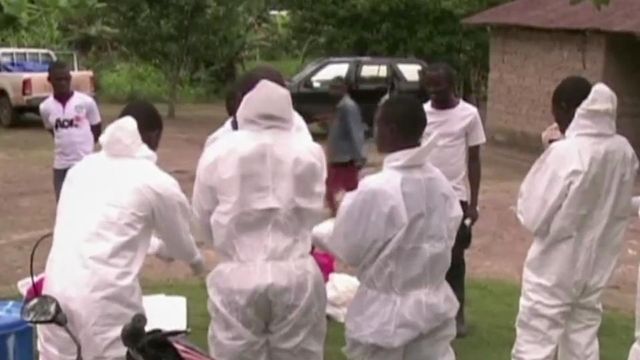UNC docs' Ebola study yields suggestions to slow its spread
Two University of North Carolina physicians who treated patients during the West African outbreak of the Ebola virus that began in 2013 and spanned three years say the fallout from those deadly days continues.
Posted — UpdatedTwo University of North Carolina physicians who treated patients during the West African outbreak of the Ebola virus that began in 2013 and spanned three years say the fallout from those deadly days continues.
"The epidemic really didn't end when the last person was discharged from an Ebola treatment unit. The epidemic just changed," Dr. Billy Fischer said.
By the time the last cluster of cases was cleared in early summer of 2016, the disease had caused 11,310 deaths.
UNC's Fischer and Dr. David Wohl recently finished a study, published in "Oxford Academic - Open Forum Infectious Diseases," focused on lingering clinical and psychological complications in survivors.
They had 230 people enrolled in the study, and 149 men donated semen samples.
"We found about 8 percent of the men who have donated are still positive for Ebola viral RNA two years beyond the onset of their illness," Fischer said.
"We don't understand how this is happening," Wohl added.
"This has incredible implications for public health recommendations," Fischer said.
The two UNC physicians along with others involved in the study have requested that the World Health Organization update their guidelines to prevent sexual transmission of the Ebola virus.
Wohl said among the questions are, "What do we advise people? And how do we do that that doesn't increase stigmatization of these survivors who've been through so much already?"
"There's going to be an outbreak every 1 to 3 years," Wohl said. "That's what history has shown us, and so if we take our eye off the ball, we're asking for trouble."
• Credits
Copyright 2024 by Capitol Broadcasting Company. All rights reserved. This material may not be published, broadcast, rewritten or redistributed.





